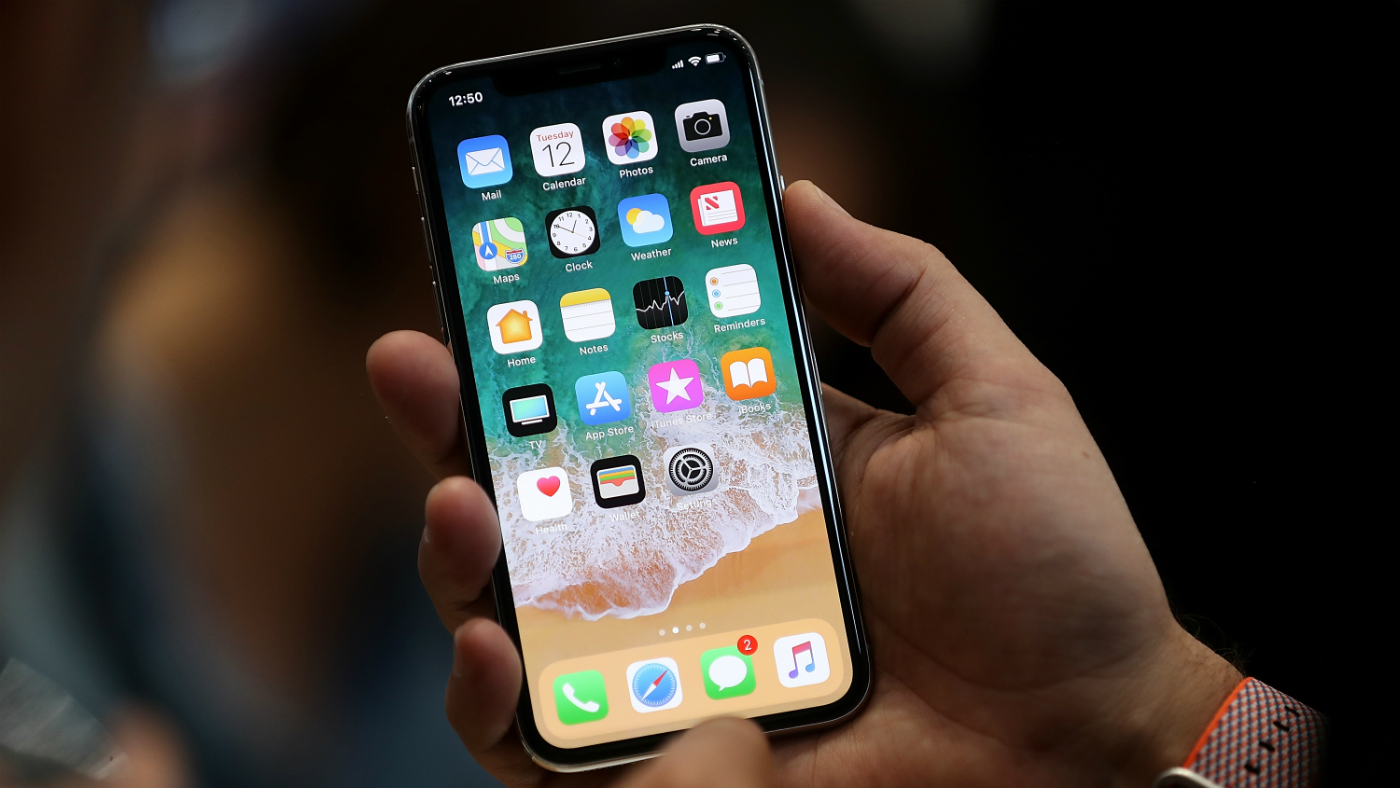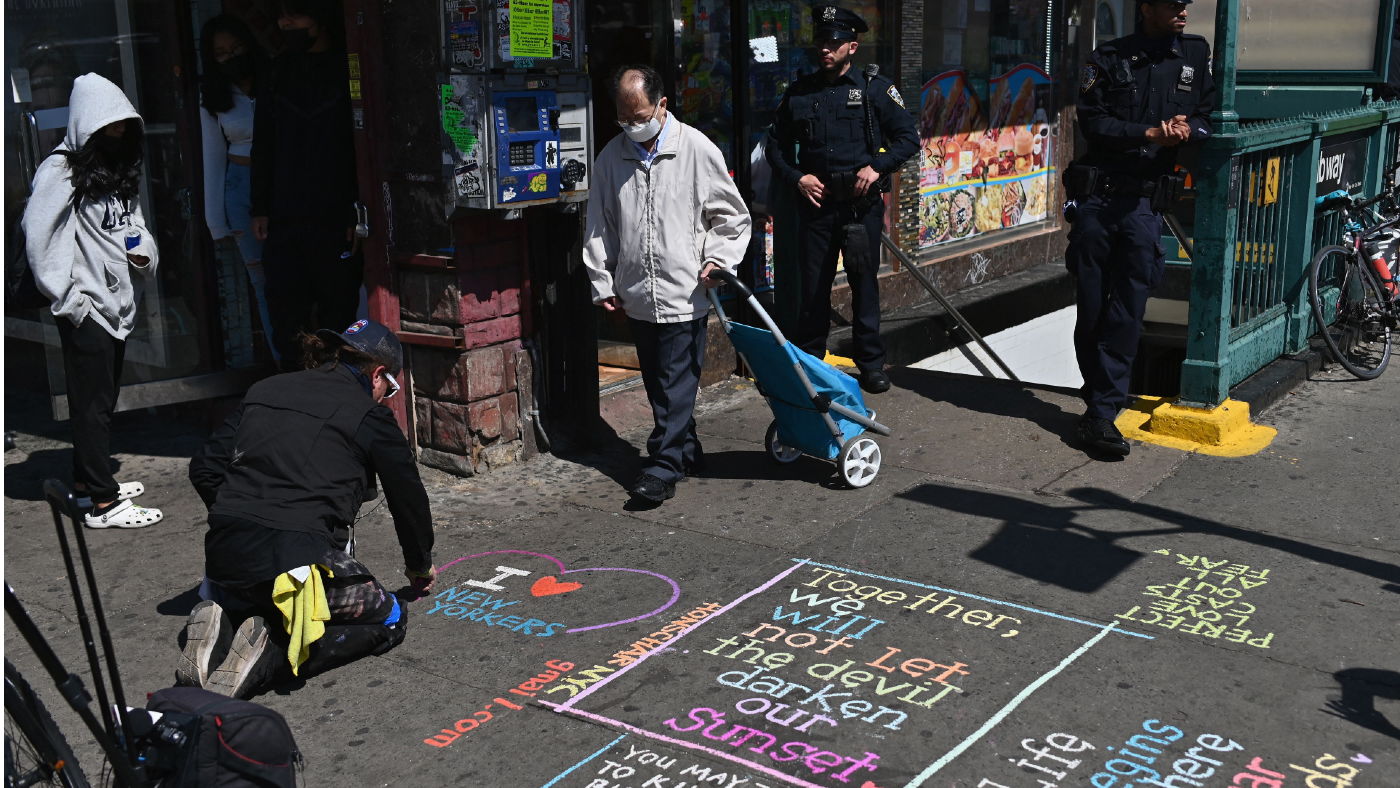Anger as police ask rape victims to hand over phones
Campaigners say new consent forms ‘treat victims like suspects’

A free daily email with the biggest news stories of the day – and the best features from TheWeek.com
You are now subscribed
Your newsletter sign-up was successful
Rape victims are being told they must hand their mobile phones to police or risk undermining the prosecution of their attackers.
Two women are planning a legal challenge against the new consent forms, which request permission to access messages, photographs, emails and social media accounts. There are fears that the resultant evidence “could be used to vilify victims in court”, says The Times.
The forms have been introduced across the 43 forces in England and Wales after a series of rape and sexual assault cases collapsed when crucial evidence suddenly emerged.
The Week
Escape your echo chamber. Get the facts behind the news, plus analysis from multiple perspectives.

Sign up for The Week's Free Newsletters
From our morning news briefing to a weekly Good News Newsletter, get the best of The Week delivered directly to your inbox.
From our morning news briefing to a weekly Good News Newsletter, get the best of The Week delivered directly to your inbox.
Many people “guard the contents of their smartphones jealously”, says the BBC, and would regard such a request from the police as an “invasion of privacy”. Some victims will feel they have been “violated all over again”, says the Daily Mail.
The digital consent forms can be used in any criminal investigations but legal experts say they are most likely to be used in rape and sexual assault cases, where complainants often know the suspect.
Director of public prosecutions Max Hill insisted that digital devices would be looked at only when they formed a “reasonable line of enquiry” and said only “relevant” material that met “hard and fast” rules would go before a court.
He added that prosecutors would endeavour to block the release of personal material not relevant to the case and judges would prevent the gratuitous use of material intended to present a “bad character” of the victim.
A free daily email with the biggest news stories of the day – and the best features from TheWeek.com
Nevertheless, Big Brother Watch compared the procedure to a “digital strip search” and warned that “treating rape victims like suspects” could deter them from reporting crimes.
Victim Support agreed, stating that it is “very likely” that it could add to victims' distress and “further deter” them from coming forward to access the “justice and support they deserve”.
The issue of evidence from phones came to prominence in 2017 when a series of defendants had charges of rape and serious sexual assault against them dropped because crucial evidence emerged as they went on trial.
Liam Allan was accused of rape but had his case thrown out of court after it emerged that a detective had not handed over text messages from the accuser’s phone.
-
 How the FCC’s ‘equal time’ rule works
How the FCC’s ‘equal time’ rule worksIn the Spotlight The law is at the heart of the Colbert-CBS conflict
-
 What is the endgame in the DHS shutdown?
What is the endgame in the DHS shutdown?Today’s Big Question Democrats want to rein in ICE’s immigration crackdown
-
 ‘Poor time management isn’t just an inconvenience’
‘Poor time management isn’t just an inconvenience’Instant Opinion Opinion, comment and editorials of the day
-
 What we know about the Copenhagen mall shooting
What we know about the Copenhagen mall shootingSpeed Read Lone gunman had mental health issues and not thought to have terror motive, police say
-
 Texas school shooting: parents turn anger on police
Texas school shooting: parents turn anger on policeSpeed Read Officers had to be urged to enter building where gunman killed 21 people
-
 DJ Tim Westwood denies multiple sexual misconduct allegations
DJ Tim Westwood denies multiple sexual misconduct allegationsSpeed Read At least seven women accuse the radio and TV presenter of predatory behaviour dating back three decades
-
 What happened to Katie Kenyon?
What happened to Katie Kenyon?Speed Read Man charged as police search for missing 33-year-old last seen getting into van
-
 Brooklyn subway shooting: exploring New York’s ‘steep decline in law and order’
Brooklyn subway shooting: exploring New York’s ‘steep decline in law and order’Speed Read Last week, a gunman set off smoke bombs and opened fire on a rush-hour train in the city
-
 How the Capitol attack investigation is splitting the Republicans
How the Capitol attack investigation is splitting the RepublicansSpeed Read Vote to censure two Republican representatives has revealed deep divisions within party
-
 Is sentencing a Nazi sympathiser to read Shakespeare an appropriate punishment?
Is sentencing a Nazi sympathiser to read Shakespeare an appropriate punishment?Speed Read Judge seemed to think introducing student ‘to high culture’ would ‘magically make him a better person’ said The Daily Telegraph
-
 Sarah Everard’s murder: a national reckoning?
Sarah Everard’s murder: a national reckoning?Speed Read Wayne Couzen’s guilty plea doesn’t ‘tidy away the reality of sexual violence’